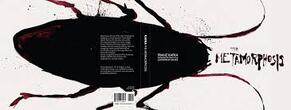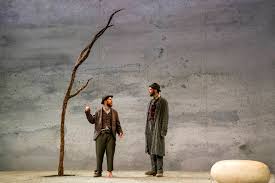 "To live in the shadows like a rat or cockroach." Jason Baker - introduction to Kafka's Metamorphoses and Other Stories I found this phrase in the introduction to Franz Kafka's Metamorphoses. The author was using it to describe the bitter, ugly surrealistic vision of world that Kafka presented in his writings. I found it interesting in that it seem to so accurately to describe the life of so many humans, people who feel that they have been shunned by God and who have created their own dismal little universes in the shadowy cracks, dark holes, existing among excrement, and subsisting on the moldy crumbs from the world above that both worships and enjoys the light from the sun. It also seems to be perfectly suited for the political temperament of our troubled times where one side seems to view human beings as Gods while the other side sees us as vermin deserving of extinction. Where the hell is Samuel Clemens when you need him? We need someone with a loud voice and guts to tell us with a school teacher's annoyed delivery that most of us exist somewhere in the middle of this, creatures with the wings of angels who shit all over the place while waiting for either a savior to convince us that we deserve our ability to tan or a farmer's wife with a butcher's knife to relieve us of our tails.
I've been reading a lot about the loss of the mythological viewpoint. It seems to me that the ancients had much healthier view of life on earth which would confuse me, considering how much easier our lives are in modern times, if it were not for the rapidity of our foolish ditching of most tradition in favor of the color and brightness of the novel yet untested.
We have this false image of the ancients naively worshipping idols and statues in lieu of having a solid scientifically based understanding of reality. The statues with the animals heads were not really meant to be worshipped, well, maybe just for the unenlightened or people incapable of grasping the mysteries. (If I'm not mistaken, Christ referenced this state of affairs in explaining his use of parables). The purpose that the statues, the temples, and the rituals really provided was as a constant reminder of the mysterious concepts that lay behind birth and creation, life and death, and human sexuality. In other words, reminders that life itself is a great mystery and that we should almost always keep that foremost in our consciousness. This releases the human mind to stand in awe and total amazement of the fact of creation, of the immensity of the universe, and the total uniqueness of life on this planet. It seems to me, that in our headlong, and often stupefying rush to explain this mystery, we have forgotten to be amazed. As scientists have gone to great lengths to explain that universe exists as the result of forceful expulsion of methane from a gigantic cow's ass on the edges of nowhere, we have forgotten the importance of both the mystery and its ability to transport us into the unknown realms. This explains to me why people like Beckett and Kafka, writing in an age without mystery, would sink so low as to almost hope that human life on this planet was just some kind of random joke being played upon the rest of us by some neverending mathematical formula dressed in a lab coat and masquerading as a cross between Joseph Mengele, Genghis Khan, and Margaret Sanger. Nowadays, we tell our children that the ancients were silly, stupid people who worshipped statues with the heads of alligators and other fanciful creatures. Then we turn them loose to mindlessly stare at television screens, compel them to suppress their natural urges at the behest of political vampires, and force them to listen to the mindless babbling of school systems which foolishly teach them to pretend that life contains no great mystery. |
Categories
All
|
Proudly powered by Weebly

 RSS Feed
RSS Feed